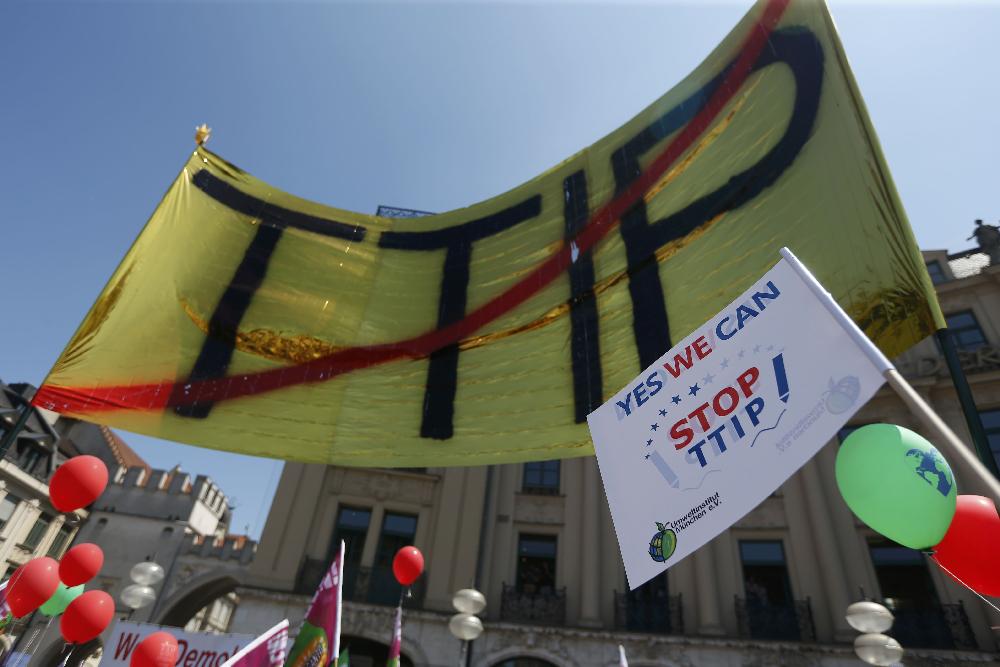To mark its 25th anniversary, the Consumer Protection Office – together with its umbrella organization BEUC – organized an international round-table discussion on the Transatlantic Trade and Investment Partnership (TTIP). TTIP is controversial because the details of the agreement are secret. Head of the Consumer Protection Office (ZPS) Breda Kutin said her organization is fine with a higher level of competitiveness as long as it is consumers who stand to benefit from it. However, they demand more transparency in the negotiations, more public input, and they also support a precautionary principle for chemicals and the food supply chain.
Moreover, they demand the exclusion of ISDS (Investor-state dispute settlement) from the agreement. ISDS is a mechanism that allows foreign investors to sue national governments if they think their (potential) profits could be affected. Similar mechanisms are part of other trade agreements between various countries around the globe, and many multinational companies take advantage of these mechanisms to sue governments if they see their profits affected.
Fear that standards will be lowered
Because TTIP could adversely affect European consumers, the European Consumer Organization (BEUC) got involved in the discussion on TTIP, the organization's Director General Monique Goyens said. The European Consumer Organization is concerned that European standards could be lowered, especially because details of the US negotiating position remain secret. "If it's secret, it's suspect," Goyens stressed.
MEP Igor Šoltes waxed poetic: "We think of transparency as some sort of Holy Grail. Everyone wants it, but we can't seem to get it." He said that the manner in which the EU's negotiating documents were presented is all but transparent: "The documents can only be inspected inside a special 'reading room', but they should really be presented to experts who could then discuss these issues."
Marko Bohar of the GZS (Chamber of Commerce and Industry of Slovenia) said that the power industry would greatly benefit from TTIP, as the agreement would harmonize standards – especially because the industry is increasingly moving towards digitization. Head of the Office of Chemicals Alojz Grabnar said he does not expect the EU to accept already banned chemicals. In cosmetics alone, 1,800 substances are prohibited in the EU – but only 11 are in the USA.
Gregor Cerar, MMC;
translated by D. V.




























































